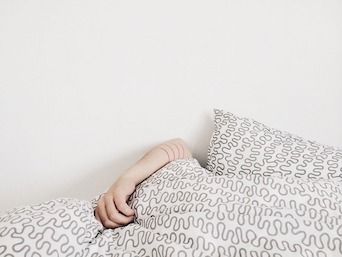Can You Catch Up on Sleep?
A recent study suggests it may be possible to catch up on the benefits of sleep by hitting the snooze button on the weekend.

The negative effects of sleep deprivation are well documented in various research studies. From the overall inability to focus to the development of cardiovascular disease and even death, sacrificing sleep has been shown to be a genuine health concern. A new study, however, says it might be possible to catch up on the benefits of sleep you may have missed.
The study, published this month in the Journal of Sleep Research, evaluated data from 43,880 adults that had been collected during a lifestyle and medical survey conducted throughout Sweden in 1997. The fate of each participant was followed for up to 13 years using a national death register.
Torbjörn Åkerstedt, PhD, director of the Stress Research Institute of Stockholm University in Sweden and one of the study authors, said previous research focused on the links between sleep duration and mortality, but only focused on sleep during the work week.
RELATED:
- Are You Suffering From ‘Social Jet Lag’?
- How to Cope With Shift Work
“I suspected there might be some modification if you included also weekend sleep or day-off sleep,” he said. And it turns out, he may have been right.
From their analysis, the investigators — which included experts from Sweden, Italy and the United States — concluded that those under the age of 65 who got five hours of sleep or less every day of the week had a 65 percent higher mortality rate than those getting six or seven hours every day. However, there was no increased risk of death for those who slept five or fewer hours during the week and managed eight or more hours of sleep on weekends or days off.
The investigators also found that when it comes to sleep, there can, in fact, be too much of a good thing. People who slept for eight or more hours, seven days a week were found to have a 25 percent higher mortality rate compared to those who slept six or seven hours a day.
While it provides another side to the ongoing debate about sleep, the study was not without its limitations — participants were only asked about their sleep patterns at one point in time. Still, the authors concluded that, possibly, getting extra hours of sleep over the weekend may compensate for sleeping less on weekdays.
What does this mean for veterinarians? While the benchmark for ideal sleep remains between seven and eight hours, late nights spent meeting deadlines, followed by early morning appointments — and somehow trying to maintain a social life in between — doesn’t always leave optimal time for your pillow. So, don’t be afraid to hit the snooze button on your day off or head to bed early on the weekends. It just might be good for your health.